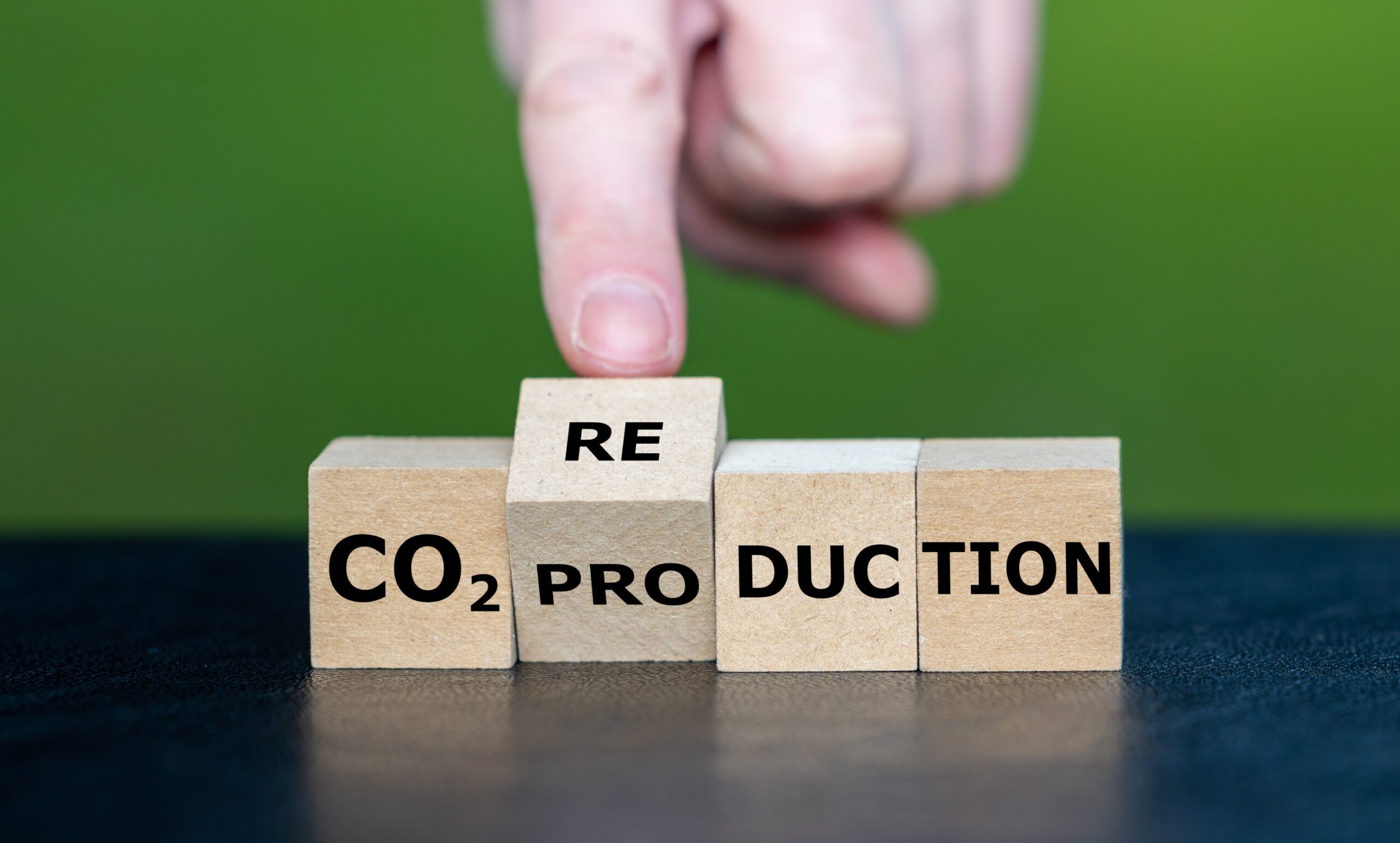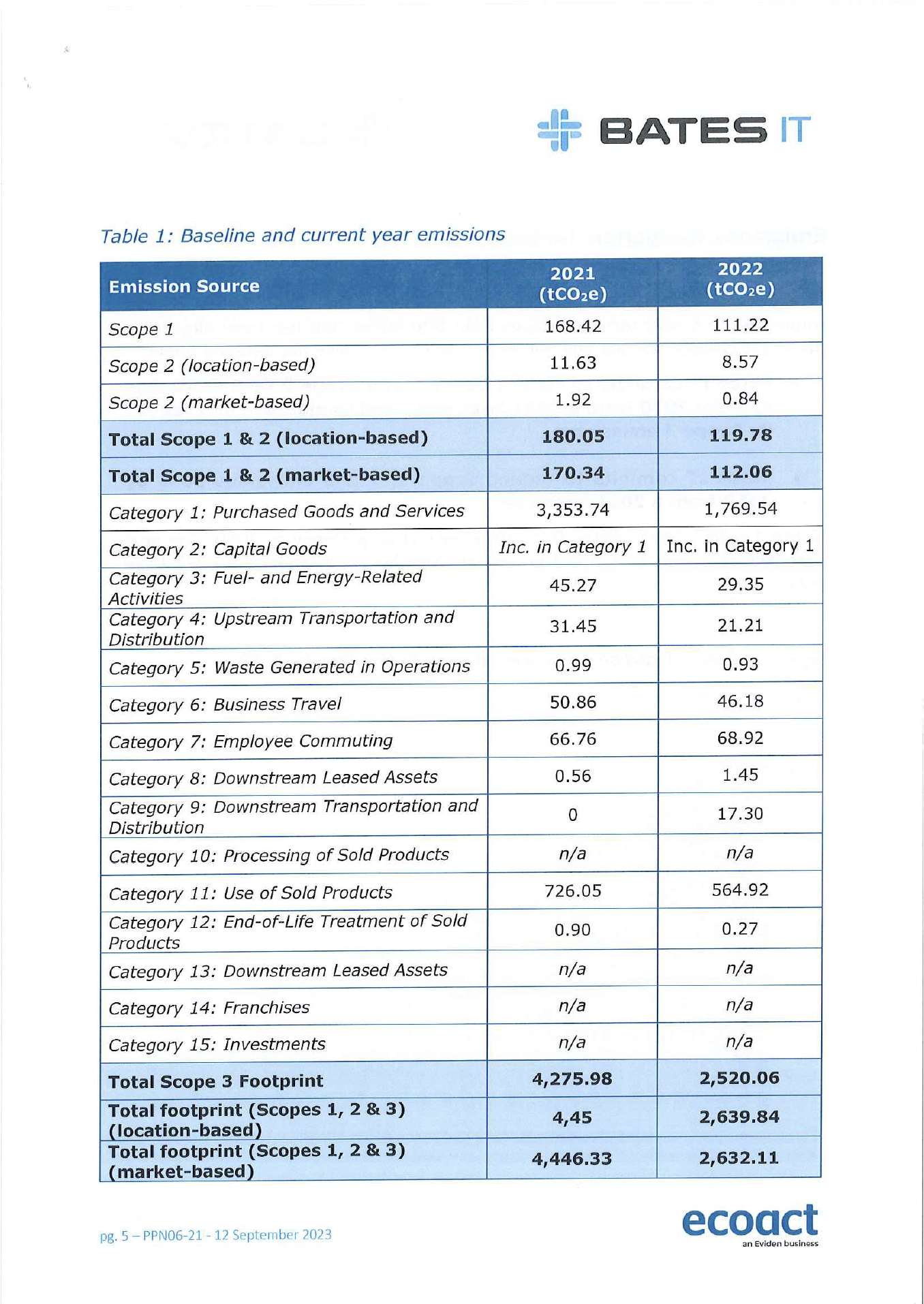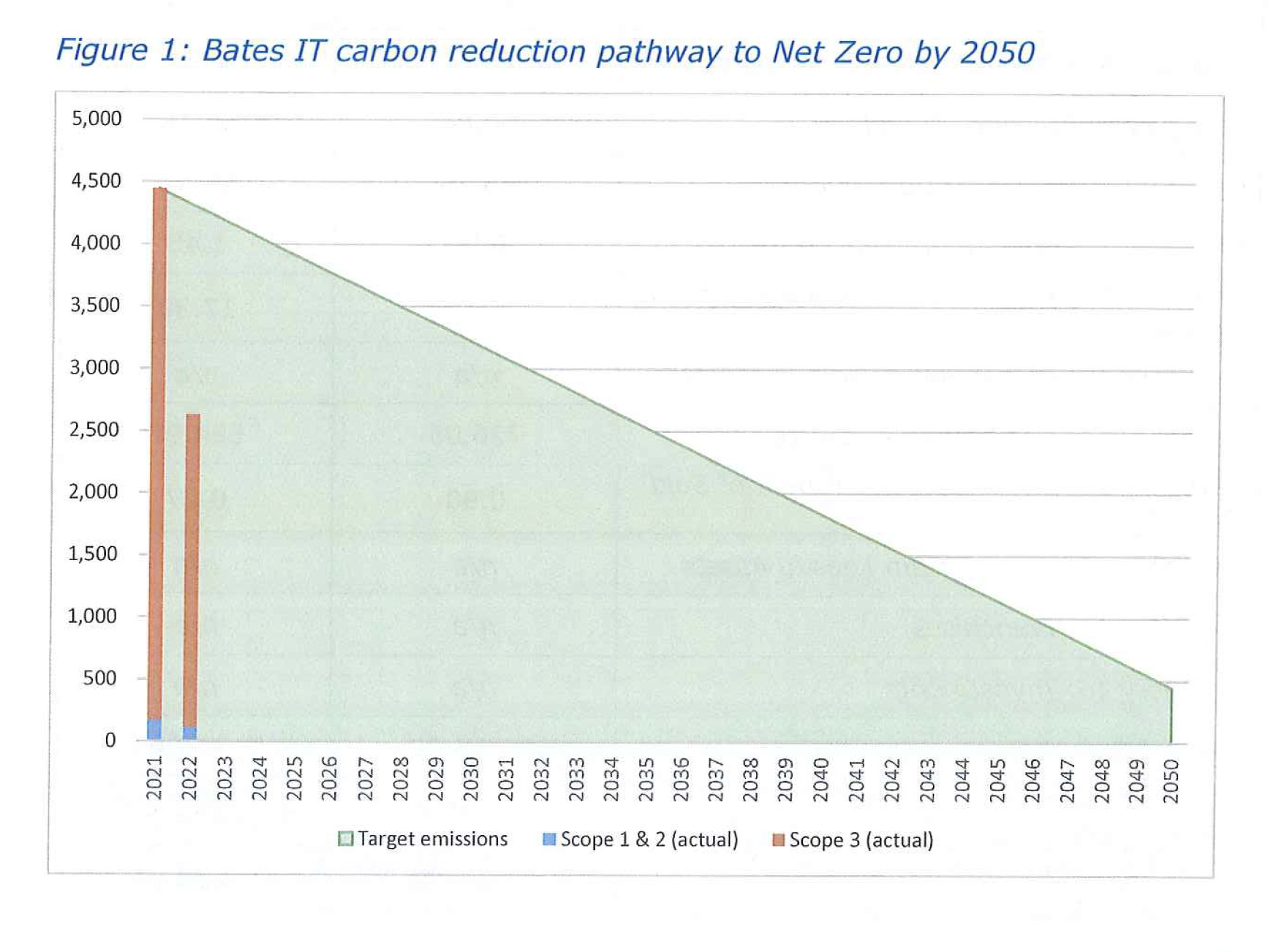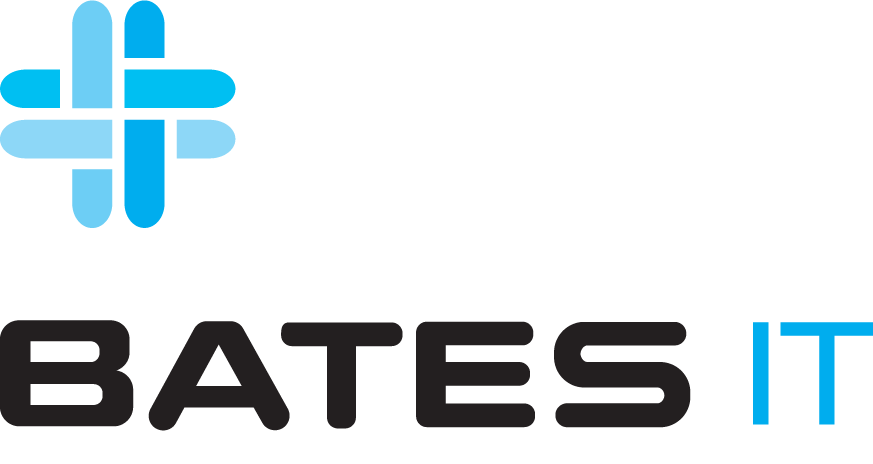Bates IT Carbon Reduction Plan
Bates IT carbon reduction plan report 2023.
Bates IT Ltd is committed to reducing Scope 1 and Scope 2 GHG emissions 42% by 2030 from a 2021 base year, and to measure and reduce its Scope 3 emissions.
Bates IT is committed to reducing Scope 1, 2 & 3 emissions 90% by 2050 from a 2021 base year.
These two targets have been externally verified and approved by the Science-Based Targets Initiative (SBTi). The SBTi is the leading global organisation that helps companies set emission reductions targets that are aligned to the latest climate science and the goals of the Paris Agreement.


Baseline Emissions Footprint
Baseline emissions are a record of the greenhouse gases that have been produced in the past. They were produced prior to the introduction of any strategies to reduce emissions. The Baseline is the reference point against which emission reduction can be measured.
This is the second year that Bates IT have calculated and reported on their emissions. Bates IT have used the calendar year 2021 as their baseline year for emissions with any emission reductions being measured against this baseline year.
Please note that, in both the baseline year (2021) and this year’s calculations (2022), Category 2 emissions are included within Category 1 emissions as it was not possible to differentiate between Capital Goods or Purchased Goods and Services. Lastly, Category 11 and 12 emissions have been recalculated this year based on an updated methodology and, therefore, the 2021 emissions have been changed to follow the same approach and restated below.
Additionally, Categories 10, 13, 14 and 15 are not relevant to Bates IT due to their business model. This is aligned to the Corporate Value Chain (Scope 3) Accounting and Reporting Standard as set out by the GHG Protocol.
Emissions Reduction Targets
In order to continue our progress to achieving Net Zero, Bates IT has committed to a near term emissions reduction target that has been aligned to the latest climate science and verified by the SBTi. These are detailed below:
Bates IT commits to reduce Scope 1 and Scope 2 GHG emissions 42% by 2030 from a 2021 base year, and to measure and reduce its Scope 3 emissions.
Bates IT commits to reduce Scope 1, 2 & 3 emissions 90% by 2050 from a 2021 base year.
Figure 1 below details Bates IT’s carbon reduction pathway to 2050. The goal is to reduce Scope 1, 2 and 3 emissions 90% by 2050, against a 2021 base year.

Carbon Reduction Projects
Bates IT has not yet been able to provide total year-on-year reductions that individual initiatives have achieved. However, they have managed to achieve an overall market-based carbon emissions equivalent reduction of 40.8% across Scope 1, 2 and 3, compared with the previous year (2021).
A number of initiatives have been implemented during the reporting year, which have led to this decrease in emissions. These include:
• 100% renewable energy procurement for all offices under Bates IT operational control,
• A company-owned vehicle upgrade to switch from diesel and petrol vehicles to plug-in hybrid electric vehicles or battery electric vehicles,
• All electrical and electronic waste is disposed of through the Waste Electrical and Electronic Equipment (WEEE) Directive,
• Bates IT also continue to disclose environmental data through the Ecovadis disclosure. This is helping ensure a more transparent supply chain for our valued partners.
In the future Bates IT are exploring further measures, such as:
• Replacing the electric heating system at the Rayne office with air source heat pumps,
• Potentially moving offices to a more energy efficient and self-sufficient building. This might include onsite solar PV and a more effective building management system (BMS).
Bates IT committed to leading by example
At Bates IT, we believe the business community has a key role in tackling carbon reduction. We’re committed to leading by example.
We are pledged to carbon reduction and will continue to measure all three Scopes year-on-year. This will allow us to continue to quantify any emission reduction activities that take place and provide reassurances to any stakeholders that we are are lessening our impact on the planet.
Climate change is one of the most pressing problems facing our world today. It affects everyone – from families worrying about their children’s futures, to pension funds deciding where to invest. The science is clear: to avoid the worst impacts of climate change, business, government and society need to work together to transition to a net zero economy by 2050.

